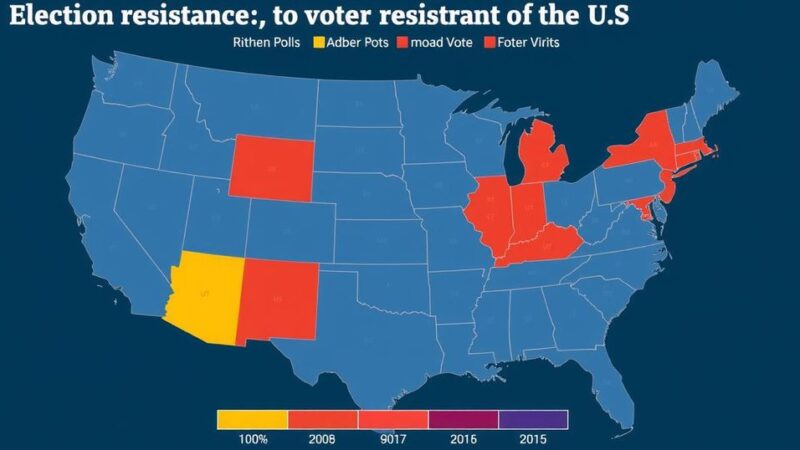The recount of Pennsylvania’s U.S. Senate race has ignited disputes over mail-in ballot protocols, prompting allegations of electoral misconduct from both parties. A focus on the envelope dating issue has led to conflicting interpretations of state law by county election boards. This ongoing situation underscores broader national tensions regarding electoral integrity, which may dictate future voting practices in the state.
The ongoing recount in Pennsylvania’s U.S. Senate race, between incumbent Democratic Senator Bob Casey and Republican David McCormick, highlights the contentious debates surrounding mail-in ballot procedures. This situation, marked by legal challenges and accusations of potential electoral misconduct, underscores the fragility of election protocols within American democracy. Conflicting interpretations of state laws regarding ballot return envelope dates have resulted in various county election boards engaging in practices that some interpret as unlawful. Although McCormick was initially declared the winner, the recount process fuels fears of irregularities that could jeopardize public trust in electoral integrity. The controversy centers on whether mail-in ballots without proper dating on their envelopes can be counted. While Republicans assert that strict adherence to state law warrants the disqualification of said ballots, Democrats argue for leniency due to what they deem minor technicalities. Recent rulings from Pennsylvania’s Supreme Court further complicate the scenario, as they decree that mail-in ballots should be rejected if they do not comply with dating requirements. Nonetheless, Democratic-controlled election boards in several counties contrarily opted to include these ballots in their tallies, leading to public outrage and threats of legal action. Moreover, a Democratic commissioner’s remark regarding potential law violations during elections ignited significant backlash from Republican circles, which interpreted her comments as a reckless dismissal of established legal frameworks. This power struggle showcases not only immediate electoral implications but also sets the stage for future legal precedents regarding mail-in voting rules. As the recount progresses, Republican officials have stated their intent to pursue all necessary legal avenues to ensure compliance with election laws, while Democratic leaders defend their decisions as essential to ensuring all eligible votes are counted. Consequently, the outcome may well shape the procedures governing future elections in Pennsylvania, potentially altering public confidence in the electoral system for years to come.
The recount in Pennsylvania’s U.S. Senate race serves as a poignant example of the evolving landscape of electoral law and the disputes that can arise from differing interpretations of regulations governing voting practices. As mail-in voting has become a more predominant mode of casting ballots, the accompanying legal frameworks surrounding these practices have also garnered increased scrutiny. With election rules frequently challenged and redefined—a trend exacerbated by the hyper-partisan climate following the previous presidential elections—this particular case illustrates broader national concerns regarding election integrity and public trust.
In summary, the recount in Pennsylvania’s U.S. Senate race not only reflects the contentious atmosphere surrounding mail-in voting but also emphasizes the potential for lasting impacts on electoral law. The disputes over ballot counting methodologies raise critical questions about adherence to legal standards and the integrity of the voting process. As both parties navigate these challenges, the outcome of this recount may have far-reaching consequences for future elections and public confidence in democratic institutions.
Original Source: apnews.com






